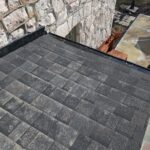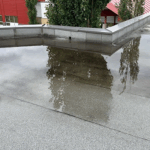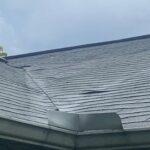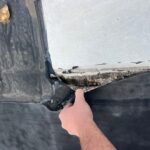When it comes to roof repairs, homeowners often find themselves wondering, “Will the whole roof be replaced, or only the damaged sections?” This question is crucial, as roofing decisions impact not only the cost of repairs but also the long-term durability and value of your home. For homeowners in Asheville, NC, and beyond, understanding the nuances of roof replacement and repair can save both time and money.
In this article, we’ll explore factors influencing whether a whole roof will be replaced or just the damaged parts, the costs involved, and the pros and cons of DIY roof repair versus professional services. This comprehensive guide is brought to you by Litespeed Construction, Asheville’s trusted roofing experts.
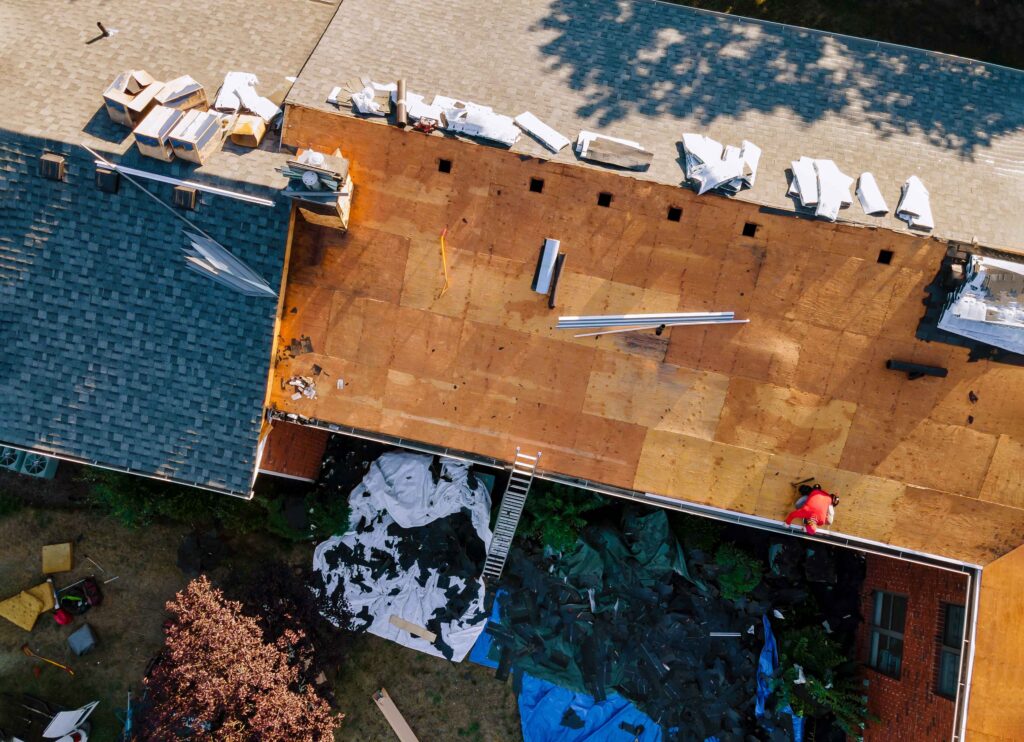
Factors That Determine the Scope of Roof Replacement
1. Extent of Damage
– Minor issues like a few missing shingles may not require replacing the entire roof. However, widespread damage, particularly to the decking or structural components, often necessitates a full replacement.
– According to the Federal Emergency Management Agency (FEMA), roofs with over 25% damage typically require replacement to comply with modern building codes.
2. Age of the Roof
– Asphalt shingle roofs typically last 20-30 years, while metal roofs can last 50+ years. If your roof is nearing the end of its lifespan, replacing the whole roof may be more cost-effective than repeated repairs.
3. Insurance Coverage
– Many homeowners’ insurance policies will cover roof replacement if the damage results from a covered peril like hail or wind. However, they may only pay for damaged sections unless the entire roof’s integrity is compromised.
4. Building Codes and HOA Regulations
– Local building codes in Asheville and elsewhere often influence the decision. For example, if more than 50% of the roof requires repair, city codes may mandate a full replacement.
5. Aesthetic Considerations
– A patchwork repair job can leave the roof looking uneven, especially if shingles have aged and weathered differently.
Comparing Partial Repairs to Full Replacement
Partial repairs may seem cost-effective initially but can lead to higher cumulative costs if the remaining roof deteriorates soon after. According to the National Roofing Contractors Association (NRCA), homeowners who opt for partial repairs spend an average of 20-30% more over a roof’s lifetime than those who replace the entire roof.
IMPORTANT: Replacement cost is the cost at the time of loss or damage to repair or replace the damaged property with new materials of like, kind, and quality for the same use at the described location.
Why Trust Litespeed Construction?
As Asheville’s leading roofing contractor, Litespeed Construction offers unparalleled expertise in determining whether the whole roof should be replaced or only the damaged sections. Here’s what sets us apart:
Certified Professionals: Licensed and insured experts familiar with North Carolina building codes.
Transparent Pricing: Detailed estimates with no hidden fees.
Top-Quality Materials: We use industry-leading products that ensure durability and aesthetic appeal.
Customer-Centric Approach: Our team is dedicated to educating homeowners about their options, empowering them to make informed decisions.
DIY Roof Repair: When It’s Viable
DIY roof repair can be an attractive option for homeowners looking to save money. However, it comes with significant risks, especially for inexperienced individuals. Here’s a closer look at when DIY roof repair is appropriate and when to call in professionals like Litespeed Construction.
Pros of DIY Roof Repair
– Cost Savings: Repairing minor issues like replacing a few shingles can save hundreds of dollars.
– Quick Fixes: Immediate repairs can prevent water intrusion while waiting for professional help.
– Learning Opportunity: DIY projects can build valuable skills.
Cons of DIY Roof Repair
– Safety Hazards: Falls from roofs account for over 30% of construction-related fatalities annually, according to OSHA.
– Improper Installation: Incorrectly installed shingles or flashing can lead to leaks and further damage.
– Void Insurance Claims: Many insurers won’t cover DIY repairs if they lead to additional issues.
FAQs About Roof Replacement and Repairs
The extent of damage, roof age, insurance coverage, and building codes play major roles.
Yes, but DIY roof repair is best suited for minor fixes and comes with safety risks.
Nationally, costs range from $7,000 to $12,000. In Asheville, expect $8,000 to $14,000.
It depends on your policy and the cause of damage. Check with your provider.
Persistent leaks, widespread shingle damage, or an old roof nearing the end of its lifespan.
It can work for localized damage but may lead to mismatched aesthetics.
Experts recommend twice a year, in spring and fall.
Most last 20-30 years, depending on maintenance and climate.
Spring and fall offer mild weather, ideal for roofing projects.
Most projects take 2-5 days, depending on size and complexity.
DIY Roof Repair vs. Professional Services
While DIY roof repair has its place, larger issues or those involving structural integrity should always be left to professionals. Trusting a reputable roofing company like Litespeed Construction ensures your home is safe and secure while avoiding costly mistakes.
Would you like to schedule a roof inspection or get a free estimate? Contact Litespeed Construction today!


